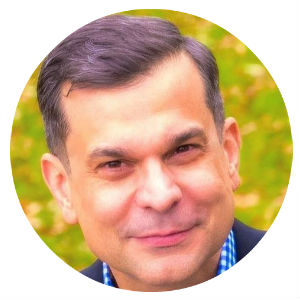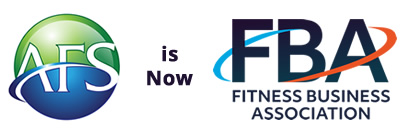 By Jay Croft, Special AFS Contributor
By Jay Croft, Special AFS Contributor
In my decades as a newspaper reporter, I asked all kinds of people all kinds of questions. Then I worked in corporate communications, which led to many more interviews in various situations.
All that experience gave me a special perspective I bring to fitness communications for studio owners.
As a fitness professional, you lead interviews all the time. Everyone in business does. Some are with employees, prospective hires, prospects, clients, vendors, potential partners, etc… Every assessment with a new customer is really an interview, isn’t it? And with all of these interactions – and more – it’s important to know how to ask the kinds of questions that will get the information you need.
Does leading a conversation make you nervous? Are you confident? Are you too polite – or too tough, like a prosecutor? Do you smile and nod when confused, hoping it will all make sense later somehow? And then do you walk away feeling absolutely frustrated?
You don’t need to worry. With a few proven tactics, you can turn any conversation into a pot of gold coins of information and perspective.
Consider this challenging scenario
Consider, for example, a certain Subject Matter Expert. She’s a genius in her field and is somehow affiliated with your studio or an associate. You and your team want to craft a plan to expand your service offerings, and her input is vital.
First, you need a fruitful conversation. You need clarity and proper engagement from the expert, who doesn’t mean to be challenging. She’s just not good at expressing her vision and she doesn’t understand why she frequently has to stop and explain things again.
Maybe she’s nervous. She might just have a terrible personality. Or maybe her sick kid kept her up all night. It doesn’t matter.
The key is this: Successful communicators are often the best listeners. They’re skilled at getting great thinkers to share those great thoughts, even people who don’t want to or don’t know how to do so.
Here’s how to help
Try these easy tips I’ve gathered over the years.
1. Do your homework for interviews
Read what you can about the person you’re meeting. If it’s a prospective hire, check her out on LinkedIn, Facebook and other social media. If it’s a reporter, read her work. If she’s a leader, see if he has any speeches on YouTube. Don’t want to waste time asking basic questions you should already have answered.
2. Organize priorities
Get clear with the subject — and also with your colleagues — about the priorities for the interview. What do you need the most? What else would be nice to have? Be sure to know what everyone needs the most (write it down so you can refer to it if you need to) and get it.
3. Show respect
Let the person indicate whether he wants to chat for a few minutes or get right down to business. Don’t interrupt or contradict, but also don’t kiss up or try to impress. Make sure they're comfortable and can hear you. Make eye contact. Don’t look at your phone.
Every assessment with a new customer is really an interview, isn’t it? And with all of these interactions – and more – it’s important to know how to ask the kinds of questions that will get the information you need.
4. Let them know what to expect
If you’ve requested the meeting, it’s possible the other person isn’t clear what it’s about – or they've forgotten. That’s ok. Don’t take it personally. Be succinct and clear about what you need. Or consider the prospective client who has no idea what to expect during an assessment. Tell her.
5. Ask for clarity
If the expert or leader seems to contradict himself or something in your notes, ask for clarification. “I’m sorry … I thought the plan called for X, rather than Y … I must be confused. Can you help me understand?” Remember: If you don’t get it, no one will.
6. Keep it simple
Ask and maybe even re-ask the basic questions. “I want to be clear for everyone: What problem does this new product solve? I believe it’s this, based on the research I’ve done… Is that correct?”
7. Mix up the questions in interviews
Ask a variety of open-ended questions (“How do you feel about how things are shaping up?”) and direct questions (“Are you satisfied with these results?”)
8. Get a few soundbites
Say you’re recording a client’s “success story” on video. On her way to making a great point, she stumbles over a few “you knows,” “uhms” and unrelated tangents. It’s OK to stop he/she and say, “That was great. I wonder if you could say it again, from the weight-loss idea to the feeling of success you described.”
9. Wrap it up.
Show respect by sticking to the time allotted, unless you both have desire and reason to extend. You might say, “I want to be respectful of your time, and we have just about five minutes left…”
Now make it matter
After the interview, consider these next steps. Transcribe your notes and share with your team or relevant colleague. Do you have HR, legal and communications advisers to update?
If needed, plan a team meeting to suggest key nuggets for use. Was there great customer feedback for your newsletter? Did the contractor make an interesting suggestion? Did the new client reveal a potential flaw in your assessment?
The bottom line is, you can and should be prepared, attentive and respectful for every business conversation.
And that’s really saying something.
Don't miss these other great articles by Jay Croft
10 Ideas to Ensure You Always Have Plenty of Fitness Topics to Write About
How Content is a Lot Like Fitness Training
The Baby Boomer Fitness Market: Why Studios Are Primed to Maximize This Opportunity
Jay Croft is a veteran journalist and content creator who leads Prime Fit Content for studios, gyms and trainers trying to engage people over 50.


Join the Conversation!